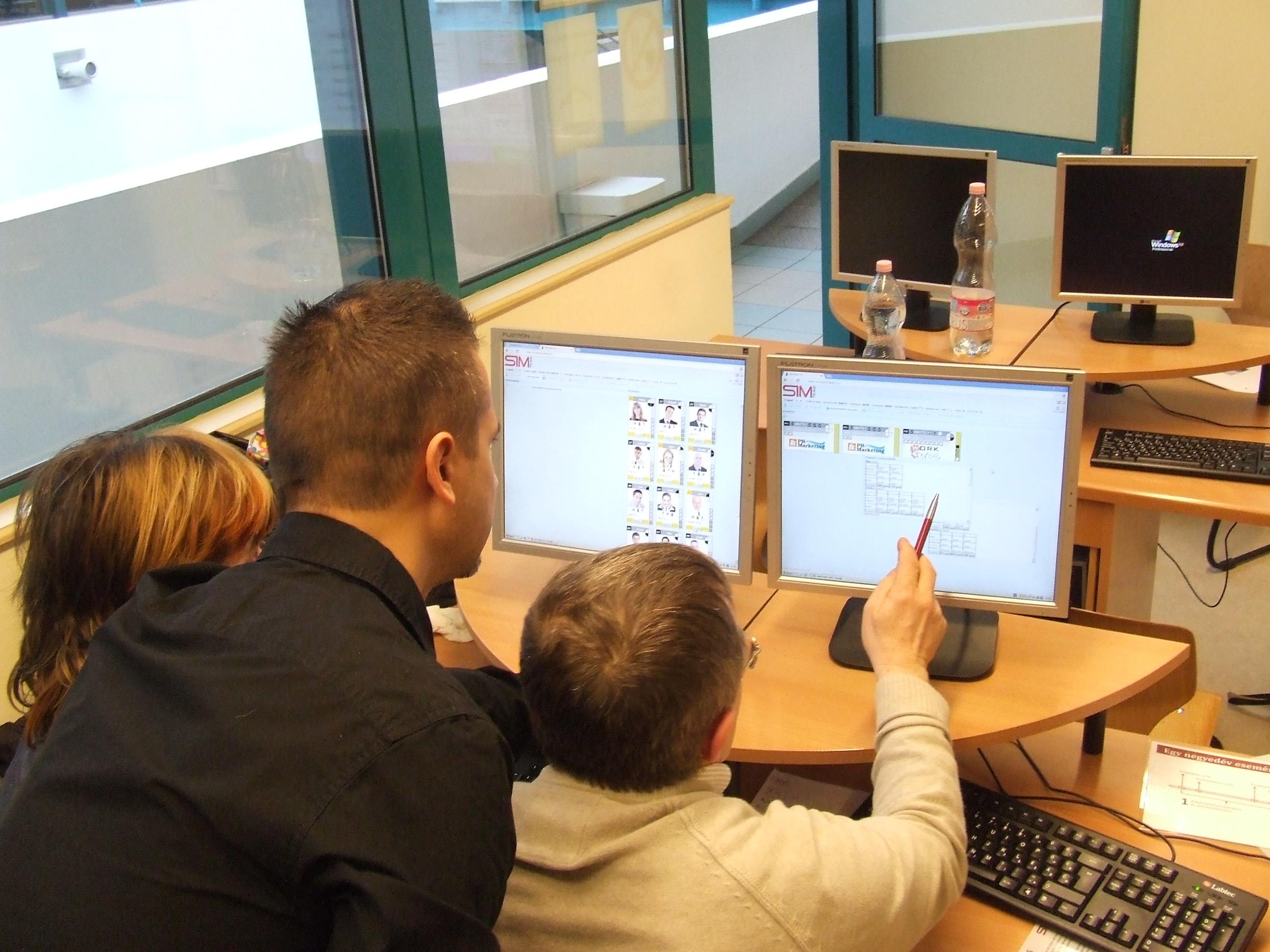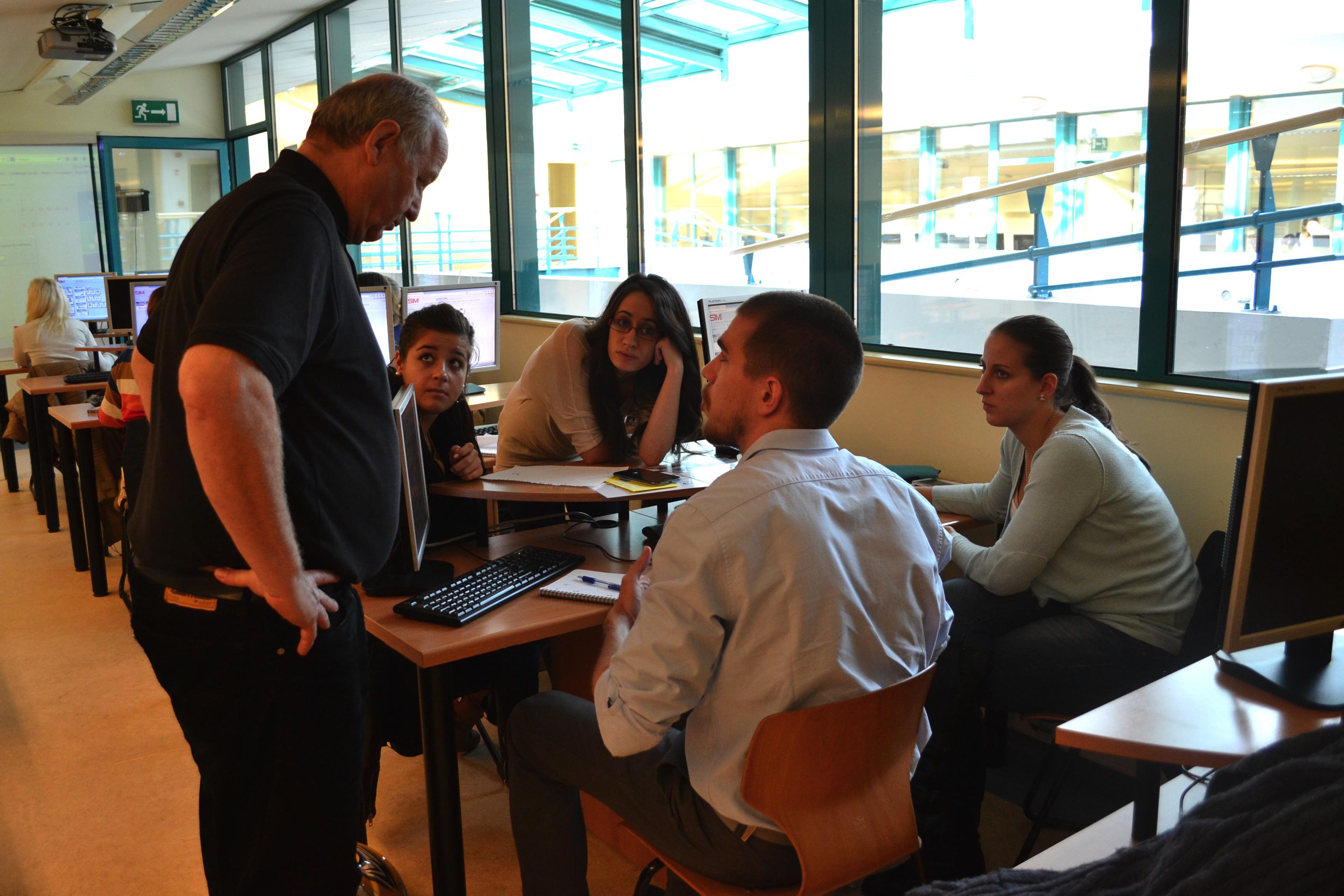Crisis Management training with Online Business Simulation
What is a crisis?
A crisis is a critical event or point of decision which, if not handled in an appropriate and timely manner, may turn into a real disaster. When unexpected events endanger the company’s survival, the management must take urgent and unprecedented actions to save the business.

When a company faces high magnitude of unexpected events, a special form of change management is necessary. Business change is a complex issue because of the relationships among the business environment, the organisation, its people and supporting technologies, and it requires that multiple business functional areas co-operate and make decisions together. Change can be instigated from within the organisation or imposed by external factors. Either way, managing such crises is a must for success and is vital for revenues and reputation.
Unlike risk management, crisis management is not planning for events and preparing with the necessary actions when these events occur, but it covers reacting to an event once it has occurred. There are some common characteristics in the two management fields, though. For example you can prepare for a certain kind of market event, but the magnitude of the effect or the event itself can greatly affect the previously created action plans.
Using an Online Business simulation for crisis management trainings
SimTeam is a web-based simulation platform, which models the operation of knowledge-based enterprises. During the simulation the participants form teams (virtual companies) and compete for projects and employees on the market.
The simulation platform helps to connect theory with practice. During the course participants work on a case study that is focused on crisis management. They need to make decisions quickly and react to market events appropriately. The trainer can select from various case studies, even customize them or build up a unique structure to simulate the desired market conditions and events.

Changes in the labour and project markets can create difficult situations for the participating teams. Our Online Business simulation platform makes it easier for the participants to understand how certain market events affect their company’s operational performance, and how to make the best decisions possible for their company.
Participant learning outcomes
After using the simulation participants will be able to do the following:
- Understand the fundamentals and core concepts of crisis management,
- Know how to analyse and assess potential risks for the business and how to identify a crisis,
- Acquire knowledge and tools to handle unexpected threats,
- Know how to assemble relevant data and information, and make effective, cooperative decisions in a short period of time,
- Know how to handle a key staff member’s departure from the company or the loss of an important client,
- Know how to make a crisis management plan for the company to ensure business continuity,
- Know how to adapt to new technologies or trends on the market,
- Know how to prepare for significant changes, and how to manage and contain them.
With their newly acquired knowledge and experience, participants will have increased probability of successfully embracing changes during a crisis, making the business more likely to survive.
Who should attend?
Crisis management trainings with our Online Business simulation platform are ideal for business continuity professionals, managers, management teams, entrepreneurs, business owners, risk and crisis management team members, or anybody who is responsible for taking strategic and tactical steps or decisions when it comes to crisis management.
At business schools and universities: students who attend management courses and need experience in change management or crisis management.
Suggested outline
The simulation can be integrated into a crisis management training course. If the trainer starts the training program with an Online Business simulation and does not tell participants that unexpected market events and business crises are coming, therefore the trainer can see and compare how the participants perform in these situations. After the simulation, the trainer can analyse the participants’ reactions and results and provide feedback about their performance.

The suggested structure of the course:
- Introduction to change and crisis management,
- Explanation of the rules of the simulation, introduction to the learning environment,
- Setting targets for the teams (and perhaps individuals),
- The simulation can be supplemented with focused topical tasks (e.g.: communication exercises or presentations among team members),
- Assessment and feedback.
The suggested length of the simulation is 0,5 – 1 day.
The simulation might also be integrated into a longer training program as a demonstrative case study.
The benefits of using a simulation
The prime reason for using the simulation is to exercise the new knowledge presented on the course. Simulations enhance the learning process. Unlike lectures, where it is difficult to reflect and still listen to the lecturer, simulations provide opportunities for reflection with participants moving in and out of the discussion as required.

Simulations are motivational events and participants are very involved in the process. This is because participants usually see simulations as competitions. This motivates in-depth discussion among them, ensuring deep processing and therefore assimilation.
Studies show that different learning approaches have different retention rates with practice by doing (through simulation) delivering a seventy-five percent retention rate. ("Learning pyramid" - Motorola University: Creating Mindware for the 21st Century, Corporate University Xchange May/June 1996, Vol 2 No 3.). Simulations can be used to "revitalise" and motivate the group. This will also have a positive effect on the participants’ absorption of knowledge.
Simulations can help linking theory with practice: the theoretical content must be complemented by sessions where participants test their skills.

When combined with traditional learning methods, business games increase efficiency of learning and help students make the connection between theoretical knowledge and professional challenges they will face in the real business world. Participants can experience the decision-making role of managers. As participants make actual business decisions and deal with the consequences of their mistakes, their knowledge retention increases exponentially.
The simulation provides an interactive platform where participants can learn the techniques and models of strategic management, experience characteristics of different strategic focus areas (e.g. market strategy, HR strategy) and face lifelike challenges without the risk of real-life strategic decisions. By the end of the course students should be able to analyse the organisation, determine strategic goals and directions, and define actions that lead to reaching those goals. But apart from basic strategic planning the participants can also learn more about preparing for the unexpected and handling crisis situations.








